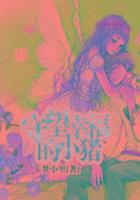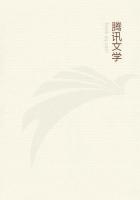medicine. 你们必须把中医同西医结合起来。
Many young people successfully integra ted themselves with their
new surroundings. 许多年轻人成功地同新的环境打成一片。
3 )辨异: conserve, preserve, vt.
从汉语概念出发有时会混淆这两个词。
conserve 表示“ 保持”、“ 保存”, 强调“ 珍惜”、“ 节用”。后面一般用energy 力量;health 健康;resources 资源等;不能连用“ 钱财”。
He is conserving his energy for the last twenty-meter dash.
他正在保存精力, 为最后20 米的冲刺作好准备。
We must conserve our forests if we are to make sure of a future supply
of wood. 如果要保证将来有木头用, 我们就得保护森林。
preserve 表示“ 收藏”或“ 保存”, 强调使之完好无损或质量不变。
Salt preserves food from decay. 盐能防止食物腐烂。
Many invaluable documents are preserved in the library.
图书馆里收藏着许多珍贵的文献。
Te xt B
Shor t-term Memory 短时记忆
Study of the Text
1.In contrast, information in short-term memory is kept for only a few seconds, usually by repeating the information over and over.
相反, 短时记忆中的信息只能保持几秒钟, 并且常常是通过再三重复。
1 )contrast 在这里是个名词, 意思是“ 对比, 对照”。in contrast 意思是“ 成对比”,“ in contrast with (或to)”是与.. 形成对照(对比)。
There can be no differentiation without contrast.
有比较才能鉴别。
He is tall, and in contrast I am short.
他个子高, 而我却个子矮。
His white hair was in sharp contrast with his dark skin.
他的白头发与他的黑皮肤构成鲜明的对比。
2 )over and over(again)一再地, 再三地
They played the same record over and over.
他们反复地放同一张唱片。
2.For example, you look up a number in the telephone book, and
before you dial, you repeat the number over and over.例如, 你在电话号码簿上查到一个号码, 在拨号之前, 你反复重复。
1 )look up 在(词典、参考书等中)查找
We can look up the word in the dictionary.
我们可以在词典里查这个词。
He got hold of a railway timetable and looked up all the trains to
London. 他弄到一份列车运行时刻表, 查阅了所有去伦敦车次的时间。
2 )动词dial 在这里的意思是“ 拨(电话号码)”,“ 打电话(给)”。
To call the police, you must dia l 110. 电话报警须拨110。
I am sorry, but you’ve dialed the wrong number.
对不起, 你拨错电话号码了。
It took him a long time to dial through.
他花了很长时间才把电话拨通。
3.Dr. Hunter studied short-term memory in rats.
亨特博士在老鼠身上做短时记忆的研究。
1 )介词in 在这里的意思是“ 在..身上, 在..上”。
You will always have a good friend in me.
我永远是你的朋友。
We find in him a true revolutionary.
我们发现他是一个真正的革命者。
2 )辨异: learn, study, v.
这两个词都可以作“学习”讲, 有时可以互换。
How long have you been learning (studying)English?
你学习英语多久了?
一般讲来, learn 更侧重学习的成果, 因此常可译作“ 学到”、“ 学会”。study 则侧重学习的过程。
He studied hard and finally learned the lesson.
他学习努力, 终于把那一课学好了。
learn 多用于学习的初级阶段或带有模仿性的操作技艺等, 而study 则用于较高深或周密的研究。
I had to learn a trade at the age of seven.
我7 岁时就不得不去学一门手艺。
You must learn to keep your balance in skating.
在溜冰时你得学会保持平衡。
He is studying the problem of cosmic rays.
他正在研究宇宙线的问题。
4.After the light was turned off, the rat had to wait a short time before
it was released from its cage.
灯关上以后, 老鼠得等一会儿才能被放出笼子。
1 )turn off 关掉(自来水、煤气、收音机等)
Please turn off the TV. 请把电视机关上。
turn on 打开(自来水、煤气、收音机等)
He asked us to be quiet, then turned the radio on.
他要我们安静一些, 随后打开了收音机。
2 )have to 不得不, 一定得, 必须
We have to be there early. 我们得早去。
He said he had to see me about something important.
他说他有件重要的事要见我。
3 )release 在这里是个及物动词, 意思是“ 释放, 放开”。
The Supreme Court pardoned and relea sed 53 war criminals on December 28. 12 月28 日, 最高法院宽大释放了53 名战犯。
On July 9 , he was released from jail after two years’ imprisonment.
7 月9 日, 他在监禁两年之后被释放出狱。
5.Finally the subjects took a language proficiency test.
最后受试者参加了一次语言熟练程度测试。
1 )take 这个动词的基本意思是“ 拿、取”,“ 带(往某处)”。
Take the tea-things away. 把茶具拿走。
You’re taking us to the zoo, aren’t you?
你准备带我们去动物园, 是吗?
take 还有一个用法是和一个名词连用, 表示进行某一动作。
After work they usually take a bath.
下班以后, 他们一般都洗个澡。
We must ta ke lots of exercise if we want to be strong.
要身体好, 我们得多运动。
They came from all parts of the country to ta ke the entrance examination.
他们从全国各地来参加入学考试。
2 )finally, at last, in the end, adv.
finally“最后”, 只指一系列事物或论点的顺序, 一般不带感情色彩。
Finally the Chairman summed up the diverse opinions expressed at
the meeting. 主席最后总结了会上所发表的不同意见。
at last 有时可与finally 互换, 但往往用于一番拖延或曲折之后,
因而带有较浓厚的情感色彩, 如不耐烦、放心、如愿等。
He has finished speaking a t last! 他可说完了。
At last I have obtained my wish! 我的愿望终于实现了!
in the end“ 终于”, 可用于预卜将来, finally 和at last 则不能。
侵略者早晚要被迫离开所占的地方。
误译: The aggressors will be forced to leave their occupied area finally (at last).















